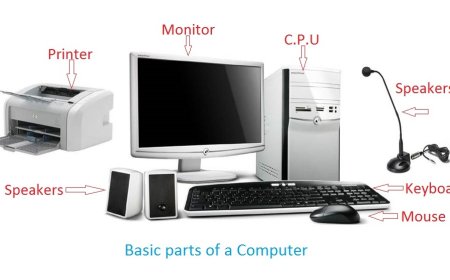Top 10 Budgeting Hacks for UK Families in 2025
With the cost of living in the UK continuing to rise in 2025, managing a family budget has never been more critical. From soaring energy bills to increasing grocery prices, UK families are feeling the pinch. However, with smart strategies, you can stretch your pounds further without sacrificing your lifestyle. Here are tenpractical budgeting hacks tailored for UK families to help you save money, reduce stress, and build a secure financial future.
1. Leverage Cashback Apps and Websites
Cashback platforms like TopCashback and Quidco are a goldmine for UK families. These services offer cashback on everyday purchases, from groceries at Tesco to insurance policies. Sign up for free, browse offers before shopping, and watch the savings accumulate. For example, buying through TopCashback at Sainsburys could earn you 25% back. Link your debit or credit card to apps like Airtime Rewards to earn cashback on mobile bills. Over a year, these small rebates can add up to hundreds of pounds.
2. Use a Budgeting App Tailored to UK Needs
Tracking spending is easier with apps like Money Dashboard or Emma, which sync with UK bank accounts and categorize expenses. These apps provide insights into where your money goes, helping you spot overspending on takeaways or subscriptions. Set monthly budgets for categories like groceries (400 for a family of four is a common benchmark) and get alerts when youre nearing limits. Many apps also integrate with UK-specific tax reliefs, like ISAs, to optimize savings.
3. Shop Smart with Supermarket Loyalty Schemes
UK supermarkets like Tesco, Sainsburys, and Asda offer loyalty programs that reward regular shoppers. Tesco Clubcard points, for instance, can be redeemed for vouchers or partner rewards, such as cinema tickets. Compare prices using apps like Trolley.co.uk to find the cheapest supermarket for your weekly shop. Buying own-brand products instead of premium brands can save up to 30%for a family spending 500 monthly on groceries, thats 150 back in your pocket.
4. Cut Energy Bills with Simple Switches
Energy prices remain a significant expense in 2025. Use comparison sites like Uswitch or MoneySuperMarket to find cheaper energy tariffs. Switching providers could save 100200 annually. Additionally, adopt energy-saving habits: turn off appliances on standby, use LED bulbs, and wash clothes at 30C. The Energy Saving Trust estimates these tweaks can cut bills by 50100 a year. For families on low incomes, check eligibility for the Warm Home Discount, offering 150 off winter bills.
5. Meal Plan to Reduce Food Waste
Food waste costs UK households an average of 700 annually, according to WRAP. Create a weekly meal plan based on whats already in your pantry, using apps like BBC Good Food for budget-friendly recipes. Batch-cook meals like stews or curries to freeze portions, and shop with a list to avoid impulse buys. Apps like Too Good To Go can help you snag discounted surplus food from local stores, saving money while reducing waste.
6. Maximize Childcare Tax Benefits
UK families can save significantly through government schemes. The Tax-Free Childcare program offers up to 2,000 per child annually for childcare costs. For working parents, check if your employer offers childcare vouchers, which reduce taxable income. If youre self-employed, ensure you claim childcare expenses against your taxes via HMRC. These benefits can free up hundreds of pounds for other family needs.
7. Hunt for Family Discounts and Free Activities
The UK is packed with budget-friendly family activities. Websites like Day Out With The Kids list free or low-cost attractions, such as museums or National Trust sites (free for under-5s). Use a Kids Pass for discounts on theme parks, cinemas, and restaurants. Local libraries often host free storytelling or craft sessions, keeping children entertained without breaking the bank. Planning outings in advance can cut entertainment costs by 50%.
8. Review and Cancel Unused Subscriptions
Streaming services, gym memberships, and magazine subscriptions can silently drain your budget. Audit your bank statements for recurring paymentsUK households spend an average of 40 monthly on unused subscriptions, per Citizens Advice. Keep essentials like Netflix or Spotify, but cancel duplicates or underused services. Tools like Rocket Money can help track and cancel subscriptions with ease.
9. Save on School Uniforms and Supplies
School costs add up quickly, with uniforms costing 200300 per child annually. Shop second-hand at platforms like Uniformerly or local Facebook groups. Buy in bulk during back-to-school sales at retailers like M&S or Aldi, and label items to avoid losses. For supplies, check free resources like BBC Bitesize for educational materials instead of pricey workbooks.
10. Build an Emergency Fund
Unexpected expenses, like car repairs or medical costs, can derail your budget. Aim to save 1,000 in an easy-access ISA (e.g., Nationwide or Santander) as a starter emergency fund. Contribute 50 monthly by automating transfers after payday. This cushion prevents reliance on high-interest credit cards, saving you hundreds in interest over time.
Final Thoughts
Implementing these budgeting hacks can transform how UK families manage their finances in 2025. Start smalltry one or two tips, like using a cashback app or meal planningand gradually incorporate others. Consistency is key. By making informed choices, you can reduce financial stress, save for family goals, and enjoy life without constant money worries. Share your own budgeting tips in the comments below to help other families thrive!






























